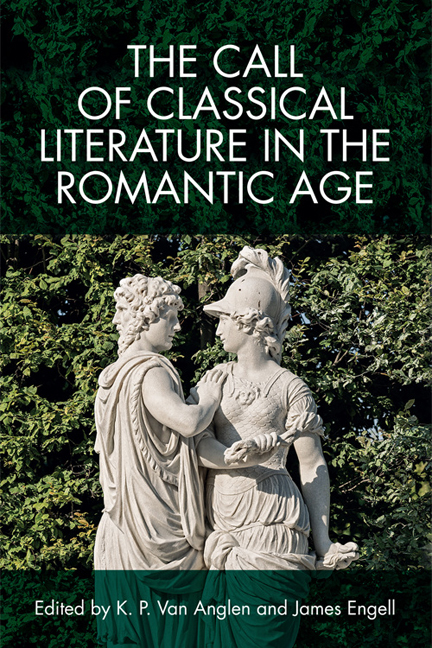5 - Changes of Address: Epic Invocation in Anglophone Romanticism
Published online by Cambridge University Press: 06 May 2021
Summary
Calling on the Muse at the start of an epic poem is an archaic custom that, were intellectual history logical, the protocols of the Enlightenment ought to have called off for good. They didn’t, though, and the convention of epic invocation persisted with vigor well into the nineteenth century. Decades before 1700 it was quite clear to René Le Bossu, doyen of neoclassical epic theory, that the generic machinery of deities and demons, angels and extramundane go-betweens, possessed only an allegorical significance, and that the Muse in particular was an allegory for poetic genius—a personification, in other words, of the very power that conceives her. While this last, recursive point may seem peculiarly modern, its modernity was not beyond reach for the young Voltaire: witness the irony that smiles across the opening of his Henriade (1723), where the epic bard, having invoked “sévère vérité,” then seeks that alpha Muse's permission to recruit “la fable” as historiographical dame de chambre: a prudent if belated collateral move, since it is imaginative fabling that makes invocation, even of Truth herself, possible to begin with. Philosophic Voltaire thus amused the neoclassical reader with a paradox to which more earnestly bemused anglophone epoists of the Romantic era would inventively return. Something about the manifestly incredible convention of invocation rescued it from discredit, prolonged its life, and suited it to the performance of a set of tasks that helped define poetic Romanticism as a traditionally grounded orientation toward the modern.
The first such romantic task, especially given the comparatively fallow because merely academic status of verse epic across the middle of the eighteenth century, was simply to get the rusty genre up and running. How to bootstrap epic, to turn the key in the generic ignition before engaging the transmission of the tale, formed a potentially daunting problem, to which the solution offered by invocation was tautologically, which is not quite to say trivially, foolproof. “Sing, O Muse”: to say as much, with Homer, was to have begun the song, no matter what matter might follow; here was one petitionary prayer that was always already granted. Much the same advantage attached to the closely allied if technically non-invocative declaration “I sing” that had been installed into the canon by Virgil's Arma virumque cano.
- Type
- Chapter
- Information
- The Call of Classical Literature in the Romantic Age , pp. 126 - 150Publisher: Edinburgh University PressPrint publication year: 2017

